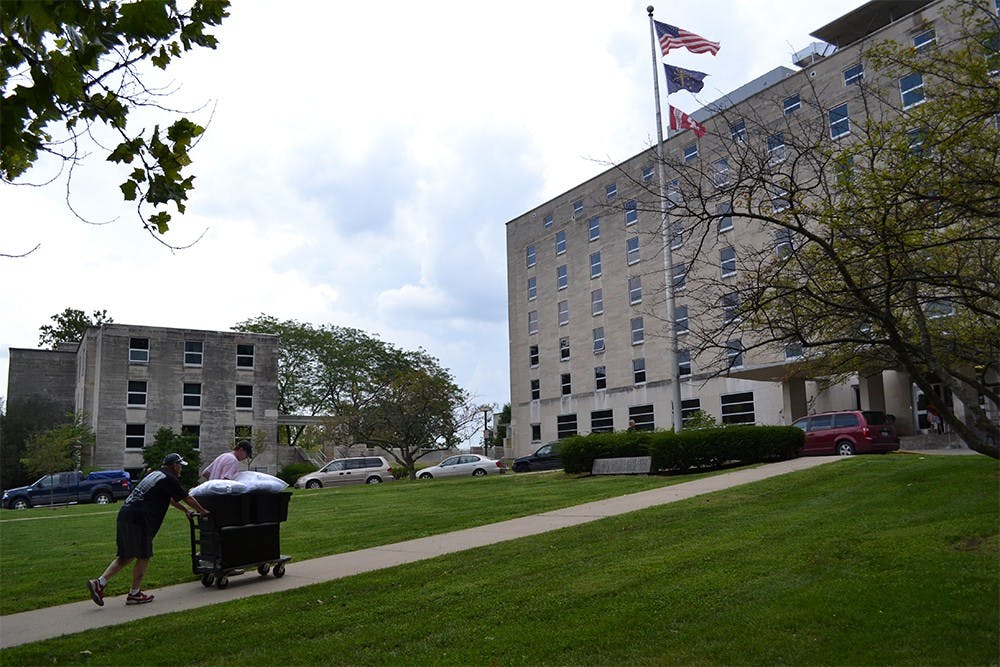Teter Quad resident Sarah Harbert said she hasn’t had a lounge room on her floor since she moved in.
When Harbert and the other students living on her floor heard some girls were moved to the lounge from their rooms due to a mold problem, they checked their own rooms. They found mold in every one, Harbert said.
Mold has been found in all buildings of Teter due to a hot, humid summer. While the levels of mold vary, maintenance workers have started cleaning the air conditioning units in all rooms of Teter, said Dan Derheimer, director of environmental health and safety.
“They’re assuming they all have mold issues,” he said. “Cleaning the units is something that needed to be done.”
The units will be wiped down with soap and water to remove the mold, and interior fiberglass parts of the unit will be replaced with foam, which is easier to clean should this problem occur again, Derheimer said.
Mold grows in high moisture places, he said. From here, it can spread to places like the carpet and walls. Many rooms in the Wissler building in Teter had this issue, so students were removed and temporarily placed in lounges.
Derheimer said something as simple as a window left open with the AC turned off could cause mold to grow. In this case, it may take only a few days for the mold to develop.
Harbert said students were given a paper during move-in that instructed them to leave their windows closed and air conditioning constantly running. Dehumidifiers were also placed on her floor at the beginning of the year.
She said she believes students should have been notified when mold was first found in the residence hall.
“We were not told that this was a problem before,” Harbert said.
This may become a risk for students, like Harbert’s roommate, who have an allergy to mold. And another girl on the floor has asthma, Harbert said.
“With mold, the risk is usually associated with the allergic response, so if they have a mold allergy or if they’re asthmatic they can have a reaction,” Derheimer said.
Before their air conditioning unit was cleaned, Harbert’s roommate often felt sick. She had symptoms like a sore throat and congestion, which was especially difficult for her because she is a musical theater major who often uses her voice, Harbert said.
“You’re not going to be able to work to your full potential if you’re sick all the time,” Harbert said.
Derheimer said they are at work to fix this issue but it may take some time because of how many rooms are in Teter. Students with symptoms or a medical condition are often bumped to the front of the line, he said.
In addition to cleaning the rooms and replacing air conditioning unit components, Derheimer said they are also doing an engineering study to see if there are any systemic issues within Teter. The study will look at air flow and if the air conditioning units can adequately keep up and dehumidify the air.
“Our goal is to have no mold next summer,” Derheimer said.




